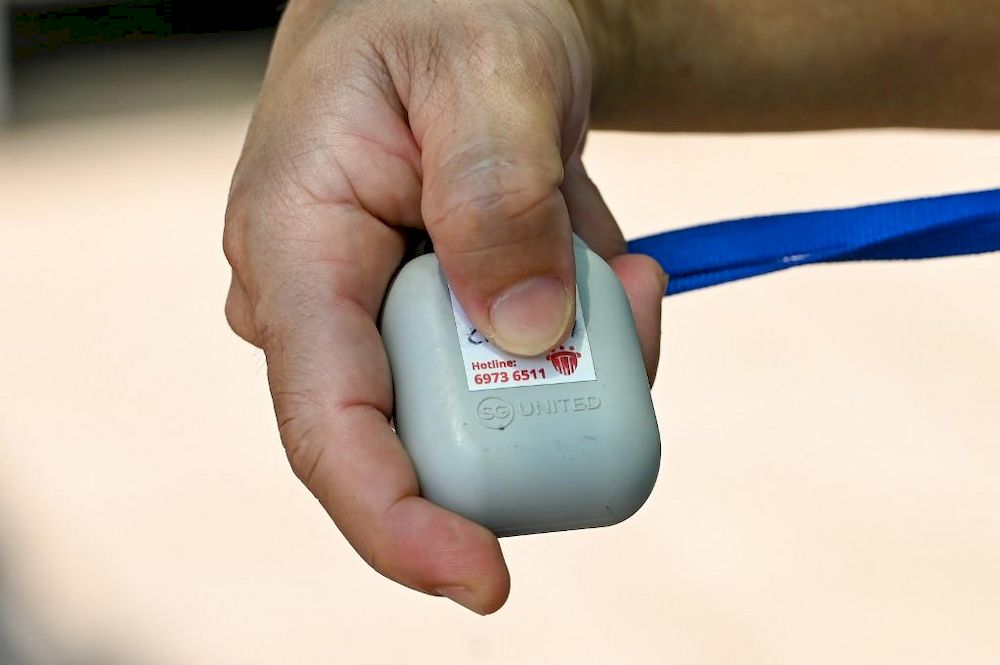SINGAPORE, Jan 10 — Acknowledging its error in not stating that TraceTogether data is not exempt from the Criminal Procedure Code, the Government said on Friday that it will pass legislation next month formalising its assurance that data collected for criminal investigations from its TraceTogether and SafeEntry programmes would be restricted to “serious offences”.
In a press release, the Smart Nation and Digital Government Office (SNDGO) under the Prime Minister’s Office noted that Dr Vivian Balakrishnan, Minister-in-charge of the Smart Nation Initiative, and K Shanmugam, Minister for Home Affairs and for Law, had on Tuesday assured Parliament and the public that the use of TraceTogether data in criminal investigations would be restricted to serious offences.
The office said that the Government will introduce legislation to “formalise these assurances” in the next Parliament sitting in February on a Certificate of Urgency. This means that the legislation could be debated and fast-tracked within a single parliamentary session.
“The legislation will specify that personal data collected through digital contact-tracing solutions, which comprise the TraceTogether programme and the SafeEntry programme, can only be used for the specific purpose of contact tracing, except where there is a clear and pressing need to use that data for criminal investigation of serious offences,” SNDGO said.
The legislation, the office added, will set out seven categories of serious offences for which the personal data collected for Covid-19 contact tracing can be used for police investigations, inquiries, or court proceedings.
The categories of serious offences are:
● Offences involving the use or possession of corrosive substances, offensive or dangerous weapons (for example, possession of firearms, armed robbery with the use of firearms)
● Terrorism-related offences under the Terrorism (Suppression of Bombings) Act, Terrorism (Suppression of Financing) Act, and Terrorism (Suppression of Misuse of Radioactive Material)
● Crimes against persons where the victim is seriously hurt or killed, such as murder, culpable homicide not amounting to murder, voluntarily causing grievous hurt (where the victim’s injury is of a life-threatening nature)
● Drug trafficking offences that attract the death penalty
● Escape from legal custody where there is reasonable belief that the subject will cause imminent harm to others
● Kidnapping
● Serious sexual offences (for example, rape, sexual assault by penetration)
SNDGO said that the data cannot be used in the investigations, inquiries or court proceedings of any other offence besides those that fall within these seven categories.
It added that it is not in the public interest to “completely deny the police access to such data” when the safety of the public or the proper conduct of justice is at stake.
SNDGO stressed that if a serious criminal offence has been committed, the police must be able to use this data to “bring the perpetrators to justice, seek redress for the victims, and protect society at large”.
“We value the trust that the public has placed in the TraceTogether programme, and feedback from members of the public. Dr Vivian and Mr Shanmugam held a public consultation (on Friday) with members of the press, the legal fraternity, technology experts and academia, to hear their views on the matter. The views gathered will inform the debate on the upcoming legislation,” SNDGO said.
The revelation in Parliament this week that the police can obtain TraceTogether data for criminal investigations under the Criminal Procedure Code has upset some people, as the Government had earlier given assurances that the data would be used solely for contact-tracing purposes to combat Covid-19.
Several political experts who spoke to TODAY agreed that the revelation had reduced public trust in the Government and, consequently, the TraceTogether programme. — TODAY






















